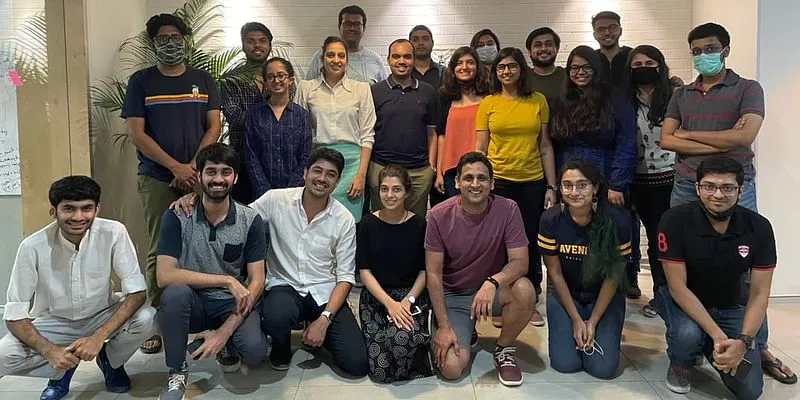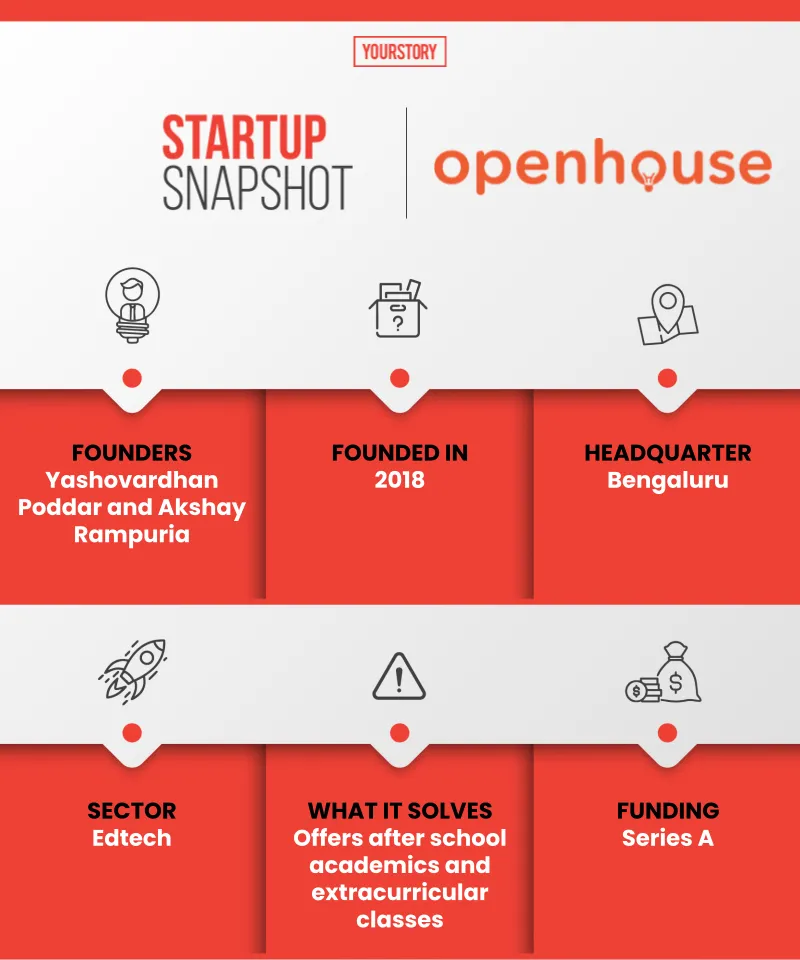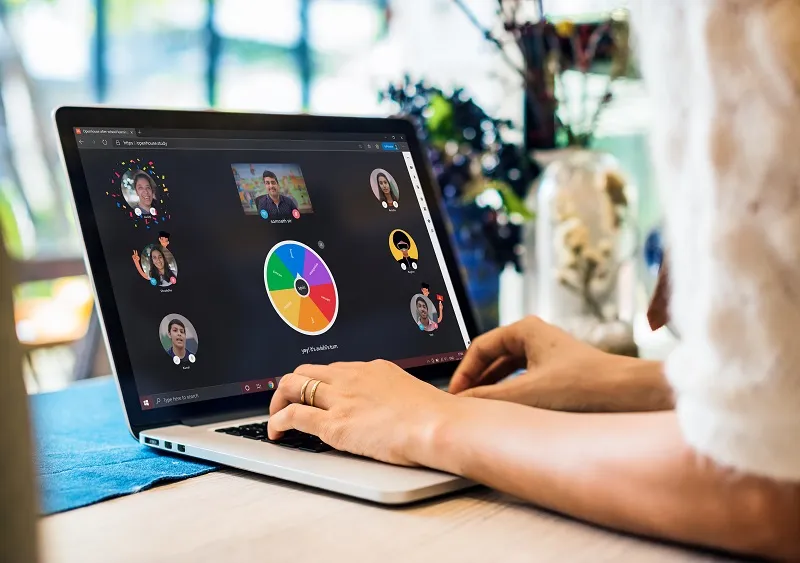How edtech startup Openhouse is addressing the experience-based learning gap
Founded in 2018, Bengaluru-based edtech startup Openhouse began with offline centres for after-school academic and extracurricular classes. The COVID-19 pandemic forced the startup, which focuses on experience-based learning, to go online.
Growing up, many of us bemoaned the emphasis on organic chemistry and Pythagoras theorem in our schoolwork. Most of the time, we ended up memorising things to pass exams. But was that really the best way?
Entrepreneurs Yashovardhan Poddar and Akshay Rampuria, Stanford University alumni, realised the gaps in the current education system during conversations with their cousins.

Openhouse currently has 134 team members [Image Credit: Openhouse]
“We were having dinner with younger cousins who were in high school and asked them what or who inspired them. They had no answer. It made us step back and realise that the current system of education was failing to inspire children. On speaking to the parents, we realised that they hoped for after-school learning programmes to fill in these gaps. Openhouse was born from those conversations,” Yashovardhan tells YourStory.
Openhouse was launched in 2018 with offline coaching centres to help students with academic lessons and extracurricular activities. The startup is mainly focused on helping students “experience lessons instead of just memorising them”.
But the COVID-19 pandemic forced the startup to move its services online last year. Now, students can participate and learn from Openhouse through its mobile app.

Illustration: YS Design
Academic classes and extracurricular clubs
According to Yashovardhan, Openhouse is positioning itself as a one-stop shop for every child’s after-school journey in India. It offers academic classes and extracurricular clubs.
“Our classes are the first of their kind in India, and we believe in learning by doing. A student is encouraged to learn through discovery and discussion.
"We go beyond textbooks to connect concepts to the real world so that what students learn has long-term value, beyond the purpose of exams. Our extracurricular clubs allow students to explore hobbies and passions beyond the classroom,” he explains.
The co-founder adds that the proprietary Openhouse platform includes a unique feature called “Elsewhere”, which alerts the teacher when a student is missing from class.
The mobile application allows students to easily upload their classwork and share it with others.
Openhouse offers online learning solutions for school students from Classes 6 to 12, but most students as of now are from Class 8 and above. The classes are held in groups, with 15 students per batch.
Students can learn all subjects, including mathematics, physics, chemistry, history, geography, English among others. Apart from this, students have access to four extracurricular clubs - public speaking, performing arts, entrepreneurship, and community service.
“We believe that a learning experience isn’t just limited to the classroom. Our oh. Lobby is a space where students can express themselves and stay in touch with what classes and clubs their friends are signing up for,” Yashovardhan says.
The startup, which has 134 team members, has two coaching centres in Kolkata and Bengaluru.
Explaining about experience-based learning, he says, “Students are often given a pre-class activity related to the topic and the class is used to discuss learnings and findings. They are active participants in the learning experience through online simulations and games.”

[Image Credit: Openhouse]
Business and more
Yashovardhan reveals that Openhouse operates on a revenue-sharing model with the teachers. The startup partners with teachers across the country for after-school classes. At present, 150 teachers are working with the edtech startup and teaching approximately 2,500 students.
While the startup declined to share details about its initial investment and funding, according to reports, the Series A-stage startup is backed by Accel and Matrix Partners.
According to a report by RedSeer and Omidyar Network India, online education offerings across Classes 1 to 12 are expected to increase 6.3X by 2022, to become a $1.7 billion market. The post-K12 market is set to grow 3.7X to reach$1.8 billion.
The pandemic has fuelled the growth of the edtech sector and has given rise to numerous opportunities. Last year, edtech giant BYJU’s also introduced an online after-school tuition programme, BYJU’S Classes, for K-12 students.
Faridabad-based GuruQ is also operating in the online tuition space. Founded last year amidst the pandemic, GuruQ is also trying to bring change in India’s rote-learning methods by helping children understand lessons.
But Openhouse believes it has a differentiator.
“We believe that good education is not about delivering content. It is about making possible experiences that help children learn best. By treating the student as an active participant, rather than a content consumer, we push the boundaries of education technology,” Yashovardhan says.
Speaking about future plans, the co-founder says hybrid learning is the future of education and the startup will focus on a hybrid model.
“Openhouse is currently looking to acquire students and teachers from Tier I cities, including Delhi, Mumbai, Bangalore, Hyderabad, Ahmedabad, Kolkata, Chennai, and more,” Yashovardhan says.
Edited by Teja Lele










